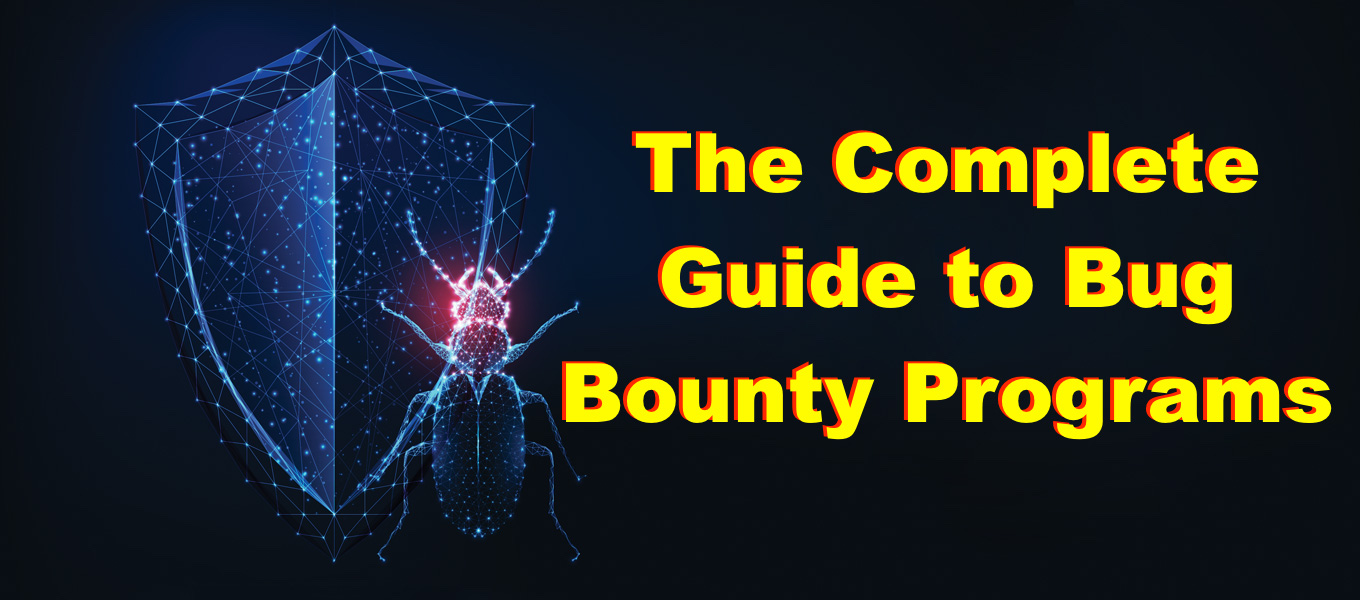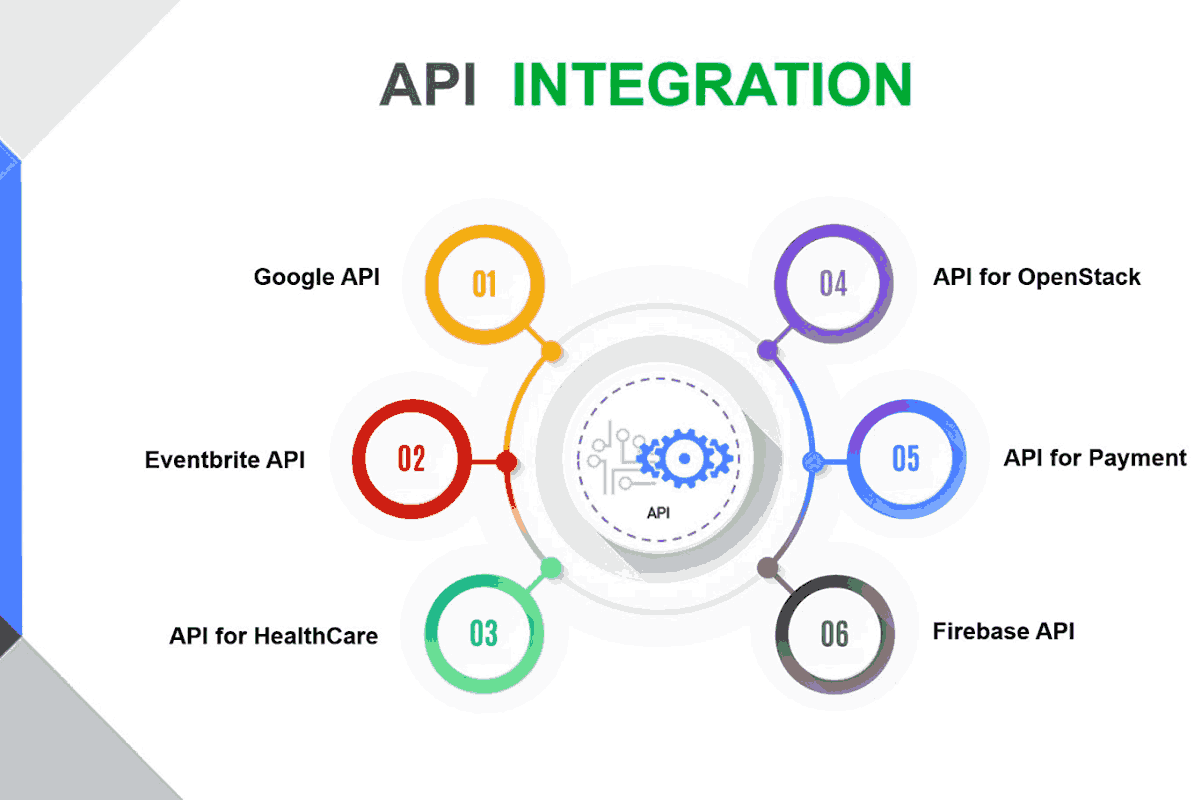
What is bug hunting?
Bug hunting is the process of finding and fixing errors or defects in software. It is an important part of the software development process, as it helps ensure that the software is of high quality and performs as intended.
There are a few key strategies for effective bug hunting:
1. Clearly define the problem: Before starting to hunt for a bug, it's important to have a clear understanding of what the problem is and what the expected behavior is. This will help narrow down the search and make it easier to find the root cause of the issue.
2. Reproduce the problem: In order to fix a bug, you first need to be able to reproduce it consistently. This means figuring out the steps necessary to make the bug appear, and documenting them so that you can test potential fixes.
3. Debug the problem: Once you've identified the steps necessary to reproduce the bug, you can use a debugger to examine the code and try to understand what's going wrong. Debuggers allow you to step through the code line by line, examine variables, and set breakpoints to pause execution at specific points in the code.
4. Fix the problem: Once you've identified the root cause of the bug, you can start working on a fix. This may involve writing new code or modifying existing code to resolve the issue.
5. Test the fix: After you've made a change to fix the bug, it's important to test the fix to make sure it actually resolves the issue and doesn't introduce any new problems.
Bug hunting can be a challenging but rewarding process. It requires a combination of problem-solving skills, technical knowledge, and attention to detail.
How much do bug hunters make?
The salary of a bug hunter can vary widely depending on factors such as the individual's level of experience, the company they work for, and the location in which they work. According to data from Glassdoor, the median salary for a bug hunter or quality assurance (QA) engineer in the United States is around $72,000 per year. However, this figure can vary significantly based on the specific job role and the company. For example, a bug hunter working for a large tech company in Silicon Valley may have a much higher salary than one working for a small startup in a different location.
In addition to a base salary, bug hunters may also be eligible for bonuses and other forms of compensation, such as stock options or benefits packages. Some companies also offer bug bounty programs, in which they pay individuals for identifying and reporting bugs in their software. The amount of money paid out through these programs can vary widely, depending on the severity of the bug and the company's policies.
It's worth noting that bug hunting is just one aspect of a career in software development or QA. There are many other career paths in these fields that may offer different salary ranges and opportunities for advancement.
Is bug hunting easy?
Bug hunting can be both challenging and rewarding. Finding and fixing bugs requires a combination of problem-solving skills, technical knowledge, and attention to detail. It can be difficult to identify the root cause of a bug, and it may require a lot of trial and error to figure out a solution.
However, bug hunting can also be a very rewarding process. Successfully finding and fixing a bug can be a satisfying experience, and it can be a great way to improve your skills and knowledge as a software developer or QA engineer.
There are a few strategies that can make bug hunting easier:
1. Clearly define the problem: Before starting to hunt for a bug, it's important to have a clear understanding of what the problem is and what the expected behavior is. This will help narrow down the search and make it easier to find the root cause of the issue.
2. Reproduce the problem: In order to fix a bug, you first need to be able to reproduce it consistently. This means figuring out the steps necessary to make the bug appear, and documenting them so that you can test potential fixes.
3. Use debugging tools: Debuggers and other tools can make it easier to examine the code and understand what's going wrong. These tools allow you to step through the code line by line, examine variables, and set breakpoints to pause execution at specific points in the code.
4. Test your fixes: After you've made a change to fix the bug, it's important to test the fix to make sure it actually resolves the issue and doesn't introduce any new problems.
Overall, while bug hunting can be challenging, it can also be a very rewarding and fulfilling career path for those who enjoy solving technical problems and improving software quality.

Can anyone become a bug bounty hunter?
Yes, anyone with the necessary skills and knowledge can become a bug bounty hunter. Bug bounty hunting involves finding and reporting bugs or vulnerabilities in software or websites, often in exchange for a reward.
To become a bug bounty hunter, you will need to have a strong understanding of computer science and programming, as well as experience with software development or testing. You will also need to be familiar with the tools and techniques used in bug hunting, such as debugging tools and testing frameworks.
In addition to technical skills, bug bounty hunters also need strong problem-solving and communication skills. They need to be able to identify and reproduce bugs consistently, and they need to be able to clearly communicate their findings to the relevant parties.
There are many online resources available for those interested in becoming a bug bounty hunter, including online courses, books, and forums where experienced bug bounty hunters share their knowledge and experiences. Participating in bug bounty programs can also be a good way to gain experience and build a portfolio.
What is the highest bug bounty ever paid?
The highest bug bounty ever paid is difficult to determine, as many bug bounty programs are private and the details of the rewards paid are not publicly disclosed. However, some of the highest reported bug bounties have been paid by tech companies such as Google, Microsoft, and Apple.
One of the highest reported bug bounties was paid by Google in 2020, when it awarded a $100,000 prize to a researcher who discovered a vulnerability in the Android operating system. In 2019, Microsoft also paid out a $100,000 bug bounty to a researcher who discovered a critical vulnerability in the Azure DevOps service.
It's worth noting that these are just a few examples of high-paying bug bounties, and the amount of money paid out through bug bounty programs can vary widely depending on the severity of the bug and the policies of the company running the program. Some companies may also offer additional rewards or bonuses for particularly significant or valuable discoveries.
Who is the richest bug bounty hunter?
It is difficult to determine the "richest" bug bounty hunter, as many bug bounty programs are private and the details of the rewards paid are not publicly disclosed. In addition, there are many different ways to measure wealth, and it is not uncommon for bug bounty hunters to supplement their income with other sources of income or to reinvest their earnings into their businesses or other investments.
That being said, there are many successful bug bounty hunters who have earned significant rewards through bug bounty programs. Some of the most well-known and successful bug bounty hunters include:
- Niklas Femerstrand: A Swedish researcher who has earned over $1 million in bug bounties.
- Richard Zhu: A researcher who has earned over $300,000 in bug bounties and is known for finding vulnerabilities in high-profile systems.
- Ben Sadeghipour: A researcher who has earned over $500,000 in bug bounties and is known for his work on the bug bounty platform HackerOne.
Again, it's worth noting that these are just a few examples of successful bug bounty hunters, and there are many others who have earned significant rewards through bug bounty programs.
Can a beginner do bug bounty?
Yes, beginners can participate in bug bounty programs. Bug bounty programs are open to anyone with the necessary skills and knowledge to find and report bugs or vulnerabilities in software or websites.
If you are a beginner and interested in participating in bug bounty programs, there are a few things you can do to get started:
1. Learn the basics of computer science and programming: A strong foundation in computer science and programming is essential for bug bounty hunting. If you are a beginner, it is important to learn the fundamentals of programming languages, data structures, and algorithms.
2. Familiarize yourself with bug bounty programs: Research different bug bounty programs and learn about their scope, rules, and rewards. Some programs may be more suitable for beginners than others, so it's important to choose one that is appropriate for your skill level.
3. Practice your skills: The best way to improve your bug bounty hunting skills is to practice. You can do this by participating in online challenges, trying out different tools and techniques, and working on your own projects.
4. Seek out resources and communities: There are many online resources and communities available for those interested in bug bounty hunting. These can be a great source of knowledge and support as you get started.
Overall, while bug bounty hunting can be challenging, it is a rewarding and fulfilling career path for those who enjoy solving technical problems and improving software quality. With dedication and hard work, beginners can become successful bug bounty hunters.
Are bug hunters hackers?
Bug hunters and hackers are two distinct groups, although there is some overlap in the skills and techniques they use.
Bug hunters, also known as security researchers or white hat hackers, are individuals who specialize in finding and reporting bugs or vulnerabilities in software or websites. They often work with companies to help improve the security and quality of their products, and they may participate in bug bounty programs to earn rewards for their discoveries.
Hackers, on the other hand, are individuals who use their technical skills to gain unauthorized access to systems or to steal or misuse information. There are many different types of hackers, including black hat hackers, who engage in illegal activities, and gray hat hackers, who may engage in both legal and illegal activities.
While both bug hunters and hackers may use similar tools and techniques to find vulnerabilities in systems, the goals and motivations of the two groups are very different. Bug hunters work to improve the security and quality of software, while hackers may be motivated by profit, revenge, or other nefarious purposes.
Is bug bounty stressful?
Like any job, bug bounty hunting can be stressful at times. Finding and reporting bugs or vulnerabilities in software or websites can be a challenging process, and it may require a lot of trial and error, problem-solving, and technical expertise.
However, many bug bounty hunters find the work to be rewarding and fulfilling, despite the challenges. The process of finding and fixing bugs can be a satisfying experience, and it can be a great way to improve your skills and knowledge as a software developer or QA engineer.
There are a few strategies that can help reduce stress while bug bounty hunting:
1. Manage your time effectively: It can be easy to get bogged down in the details of a bug hunt, so it's important to set clear goals and prioritize your tasks.
2. Take breaks: Working for long periods of time can be stressful and can lead to burnout. It's important to take breaks and step away from your work regularly to rest and recharge.
3. Seek support: Bug bounty hunting can be a solitary activity, so it's important to seek out support from colleagues or peers when needed. Joining online communities or participating in group bug bounty programs can be a great way to connect with others and share knowledge and experiences.
Overall, while bug bounty hunting can be stressful at times, it can also be a very rewarding and fulfilling career path for those who enjoy solving technical problems and improving software quality.
How do bug bounties get paid?
Bug bounties are typically paid through a combination of cash and/or other forms of compensation, such as recognition or rewards. The specific terms of a bug bounty program, including the amount and form of the reward, are typically determined by the company or organization running the program.
Here are a few common ways in which bug bounties may be paid:
1. Cash: Many bug bounty programs pay a cash reward to researchers who discover and report bugs or vulnerabilities. The amount of the reward may vary depending on the severity of the bug and the policies of the company running the program.
2. Stock or equity: Some companies may offer stock or equity as a form of compensation for bug bounty hunters. This can be an attractive option for those who are interested in long-term investment or in becoming a shareholder in the company.
3. Recognition: Some bug bounty programs may offer recognition or other non-monetary rewards to researchers who discover and report bugs. This can include things like public acknowledgement, certificates, or other forms of recognition.
4. Other perks or benefits: Some bug bounty programs may offer additional perks or benefits to researchers, such as access to new products or services, discounts, or other perks.
Overall, the specific terms of a bug bounty program will depend on the company or organization running the program, and it is important for researchers to carefully review the terms and conditions before participating.
Is bug bounty a full time job?
Bug bounty hunting can be a full-time job for some individuals, although it is not uncommon for bug bounty hunters to work on a part-time or freelance basis. Bug bounty programs are open to anyone with the necessary skills and knowledge to find and report bugs or vulnerabilities in software or websites, and there is no formal education or certification required to participate.
Many bug bounty hunters are self-employed or work as freelancers, and they may participate in multiple bug bounty programs or work on other projects in addition to their bug hunting activities. Others may work as full-time employees or contractors for companies or organizations that offer bug bounty programs.
The amount of time and effort required to participate in bug bounty programs will vary depending on the specific program and the individual's goals and motivations. Some bug bounty hunters may work on bug hunting as a part-time hobby, while others may make it their full-time career.
Overall, bug bounty hunting can be a flexible and rewarding career path for those who enjoy solving technical problems and improving software quality.
Where can I find bug bounty?
There are several ways to find bug bounty programs:
1. Online platforms: There are several online platforms that offer bug bounty programs, such as HackerOne, Bugcrowd, and Synack. These platforms provide a centralized place for companies to list their bug bounty programs and for researchers to find and participate in them.
2. Company websites: Many companies and organizations have their own bug bounty programs and list them on their websites. You can search for companies in your area of expertise and see if they have a bug bounty program in place.
3. Online communities: There are many online communities, such as forums and mailing lists, where bug bounty hunters share information about new and ongoing programs. Joining these communities can be a great way to stay informed about new opportunities.
4. Personal connections: Networking with other bug bounty hunters or working with companies that you have a personal connection to can be a good way to find bug bounty opportunities.
It's worth noting that not all bug bounty programs are publicly listed, and some may be invitation-only or private. However, there are still many opportunities available for those interested in participating in bug bounty programs.
What skills are needed for bug bounty?
To be successful in bug bounty hunting, you will need a combination of technical and non-technical skills. Here are a few skills that are important for bug bounty hunters:
1. Programming: A strong foundation in programming is essential for bug bounty hunting. You will need to be proficient in at least one programming language and have a good understanding of data structures and algorithms.
2. Debugging: Being able to effectively use debugging tools and techniques is crucial for identifying and fixing bugs. You should be familiar with using a debugger to step through code, examine variables, and set breakpoints.
3. Problem-solving: Bug bounty hunting often involves solving complex technical problems. You will need strong problem-solving skills to identify and troubleshoot issues.
4. Communication: Being able to clearly communicate your findings and recommendations to others is important for bug bounty hunting. You should be able to write clear and concise reports and communicate effectively with team members and stakeholders.
5. Networking: Networking with other bug bounty hunters and building relationships with companies and organizations can be a valuable way to find new opportunities and stay informed about new programs.
Overall, while technical skills are important for bug bounty hunting, non-technical skills such as problem-solving and communication can also be crucial for success.
How long does a bug bounty take?
The length of a bug bounty program can vary widely depending on the specific program and the goals of the company or organization running it. Some bug bounty programs may be open-ended, with no set end date, while others may have a fixed duration.
The length of time it takes for an individual bug bounty hunter to find and report a bug can also vary. Some bugs may be discovered and reported quickly, while others may take longer to identify and fix. Factors that can influence the length of time it takes to find and report a bug include the complexity of the bug, the tools and techniques used to find it, and the individual's skill level and experience.
It's worth noting that bug bounty hunting is an ongoing process, and even after a bug has been found and reported, it may take additional time for the company or organization to verify the bug and implement a fix.
Overall, the length of a bug bounty program and the time it takes to find and report a bug will depend on a variety of factors, and it is difficult to predict exactly how long a bug bounty will take.
What tools do bug bounty hunters use?
Bug bounty hunters may use a variety of tools to help them find and report bugs or vulnerabilities in software or websites. Here are a few common tools that bug bounty hunters use:
1. Debuggers: Debuggers are tools that allow you to step through code line by line, examine variables, and set breakpoints to pause execution at specific points in the code. Debuggers can be useful for identifying the root cause of a bug and for testing potential fixes.
2. Testing frameworks: Testing frameworks are tools that help automate the testing process by providing a set of tools and libraries for creating and running tests. Testing frameworks can be useful for finding bugs in large or complex systems.
3. Security scanners: Security scanners are tools that can help identify vulnerabilities in systems by performing automated security assessments. These tools can be useful for identifying common vulnerabilities such as SQL injection or cross-site scripting (XSS).
4. Network analysis tools: Network analysis tools, such as Wireshark, can help bug bounty hunters understand how data is being transmitted over a network and identify potential vulnerabilities.
5. Source code analysis tools: Source code analysis tools, such as static analysis tools, can help bug bounty hunters identify potential vulnerabilities in source code by examining the code for known patterns or issues.
In addition to these tools, bug bounty hunters may also use other resources, such as online documentation and forums, to help them find and report bugs.
Keywords:
- Bug Bounty Programs
- Bug Bounty
- richest bug bounty hunter
- Are bug hunters hackers?











Leave a comment